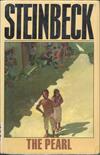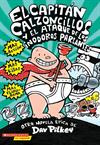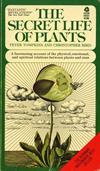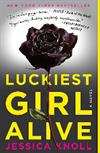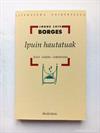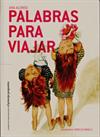
Midnight's Children
1 journaler for this copy...
Synopsis (amazon)
Anyone who has spent time in the developing world will know that one of Bombay's claims to fame is the enormous film industry that churns out hundreds of musical fantasies each year. The other, of course, is native son Salman Rushdie--less prolific, perhaps than Bollywood, but in his own way just as fantastical. Though Rushdie's novels lack the requisite six musical numbers that punctuate every Bombay talkie, they often share basic plot points with their cinematic counterparts.
Take, for example, his 1980 Booker Prize-winning Midnight's Children: two children born at the stroke of midnight on August 15, 1947--the moment at which India became an independent nation--are switched in the hospital. The infant scion of a wealthy Muslim family is sent to be raised in a Hindu tenement, while the legitimate heir to such squalor ends up establishing squatters' rights to his unlucky hospital mate's luxurious bassinet. Switched babies are standard fare for a Hindi film, and one can't help but feel that Rushdie's world-view--and certainly his sense of the fantastical--has been shaped by the films of his childhood. But whereas the movies, while entertaining, are markedly mediocre, Midnight's Children is a masterpiece, brilliant written, wildly unpredictable, hilarious and heartbreaking in equal measure.
Rushdie's narrator, Saleem Sinai, is the Hindu child raised by wealthy Muslims. Near the beginning of the novel, he informs us that he is falling apart--literally:
I mean quite simply that I have begun to crack all over like an old jug--that my poor body, singular, unlovely, buffeted by too much history, subjected to drainage above and drainage below, mutilated by doors, brained by spittoons, has started coming apart at the seams. In short, I am literally disintegrating, slowly for the moment, although there are signs of an acceleration.
In light of this unfortunate physical degeneration, Saleem has decided to write his life story, and, incidentally, that of India's, before he crumbles into "(approximately) six hundred and thirty million particles of anonymous, and necessarily oblivious, dust." It seems that within one hour of midnight on India's independence day, 1,001 children were born. All of those children were endowed with special powers: some can travel through time, for example; one can change gender. Saleem's gift is telepathy, and it is via this power that he discovers the truth of his birth: that he is, in fact, the product of the illicit coupling of an Indian mother and an English father, and has usurped another's place. His gift also reveals the identities of all the other children and the fact that it is in his power to gather them for a "midnight parliament" to save the nation. To do so, however, would lay him open to that other child, christened Shiva, who has grown up to be a brutish killer.
Saleem's dilemma plays out against the backdrop of the first years of independence: the partition of India and Pakistan, the ascendancy of "The Widow" Indira Gandhi, war, and, eventually, the imposition of martial law.
We've seen this mix of magical thinking and political reality before in the works of Günter Grass and Gabriel García Márquez. What sets Rushdie apart is his mad prose pyrotechnics, the exuberant acrobatics of rhyme and alliteration, pun, wordplay, proper and "Babu" English chasing each other across the page in a dizzying, exhilarating cataract of words. Rushdie can be laugh-out-loud funny, but make no mistake--this is an angry book, and its author's outrage lends his language wings. Midnight's Children is Salman Rushdie's irate, affectionate love song to his native land--not so different from a Bombay talkie, after all.
Anyone who has spent time in the developing world will know that one of Bombay's claims to fame is the enormous film industry that churns out hundreds of musical fantasies each year. The other, of course, is native son Salman Rushdie--less prolific, perhaps than Bollywood, but in his own way just as fantastical. Though Rushdie's novels lack the requisite six musical numbers that punctuate every Bombay talkie, they often share basic plot points with their cinematic counterparts.
Take, for example, his 1980 Booker Prize-winning Midnight's Children: two children born at the stroke of midnight on August 15, 1947--the moment at which India became an independent nation--are switched in the hospital. The infant scion of a wealthy Muslim family is sent to be raised in a Hindu tenement, while the legitimate heir to such squalor ends up establishing squatters' rights to his unlucky hospital mate's luxurious bassinet. Switched babies are standard fare for a Hindi film, and one can't help but feel that Rushdie's world-view--and certainly his sense of the fantastical--has been shaped by the films of his childhood. But whereas the movies, while entertaining, are markedly mediocre, Midnight's Children is a masterpiece, brilliant written, wildly unpredictable, hilarious and heartbreaking in equal measure.
Rushdie's narrator, Saleem Sinai, is the Hindu child raised by wealthy Muslims. Near the beginning of the novel, he informs us that he is falling apart--literally:
I mean quite simply that I have begun to crack all over like an old jug--that my poor body, singular, unlovely, buffeted by too much history, subjected to drainage above and drainage below, mutilated by doors, brained by spittoons, has started coming apart at the seams. In short, I am literally disintegrating, slowly for the moment, although there are signs of an acceleration.
In light of this unfortunate physical degeneration, Saleem has decided to write his life story, and, incidentally, that of India's, before he crumbles into "(approximately) six hundred and thirty million particles of anonymous, and necessarily oblivious, dust." It seems that within one hour of midnight on India's independence day, 1,001 children were born. All of those children were endowed with special powers: some can travel through time, for example; one can change gender. Saleem's gift is telepathy, and it is via this power that he discovers the truth of his birth: that he is, in fact, the product of the illicit coupling of an Indian mother and an English father, and has usurped another's place. His gift also reveals the identities of all the other children and the fact that it is in his power to gather them for a "midnight parliament" to save the nation. To do so, however, would lay him open to that other child, christened Shiva, who has grown up to be a brutish killer.
Saleem's dilemma plays out against the backdrop of the first years of independence: the partition of India and Pakistan, the ascendancy of "The Widow" Indira Gandhi, war, and, eventually, the imposition of martial law.
We've seen this mix of magical thinking and political reality before in the works of Günter Grass and Gabriel García Márquez. What sets Rushdie apart is his mad prose pyrotechnics, the exuberant acrobatics of rhyme and alliteration, pun, wordplay, proper and "Babu" English chasing each other across the page in a dizzying, exhilarating cataract of words. Rushdie can be laugh-out-loud funny, but make no mistake--this is an angry book, and its author's outrage lends his language wings. Midnight's Children is Salman Rushdie's irate, affectionate love song to his native land--not so different from a Bombay talkie, after all.
De Biblionrecensie zegt:
"Als roman in de literatuurkritiek hoog geprezen, doch door zijn overdaad aan beelden, gebeurtenissen, absurditeiten en extremiteiten en zijn grote omvang moeilijk toegankelijk voor de gemiddelde lezer."
Ik ben een gemiddelde lezer, denk ik, maar vond het boek helemaal niet moeilijk toegankelijk... ik vond het (misschien wel) juist door die overdaad geweldig!
De wijze waarop Rushdie bijvoorbeeld de (vermeende?) verbondenheid tussen de gebeurtenissen in het leven en de familie van de hoofdrolspeler Saleem Sinai invult, is vaak enorm origineel. Zo maakt Saleem een (anoniem) briefje van krantenkoppen:
From GOAN LIBERATION COMMITTE LAUNCHES SATYAGRAHA CAMPAIGN I extracted teh letters 'COM'; SPEAKER OF E-PAK ASSEMBLY DECLARED MANIAC gave me my second syllable 'MAN'. I found 'DER' concealed in NEHRU CONSIDERS RESIGNATION AT CONGRESS ASSEMBLY; into my second word now, I excised 'SAB' form RIOTS, MASS ARRESTS IN RED-RUN KERALA: SABATEURS RUN AMOK: GHOSH ACCUSES CONGRESS GOONDAS, and got 'ARM' from CHINESE ARMED FORCES' BORDER ACTIVITIES SPURN BANDUNG PRINCIPLES. enz.
De overdaad van dit boek heeft maar een groot nadeel.. er valt zoveel te genieten en dus zoveel over te vertellen dat ik niet weet waar ik beginnen en al helemaal niet waar ik eindigen moet.
Wat de Biblionrecensie vergeet te melden en wat ik tenslotte in ieder geval wil noemen, is de humor van Rushdie. Over de verdediging van Lahore tegen het leger van India vertelt Saleem ons bijvoorbeeld (eigenlijk aan Padma, maar vooruit):
Martyrs, Padma! Heroes, bound for the perfumed garden! Where the men would be given four beautious houris, untouched by man of djinn; and the women, four equally virile males! Which of your Lord's blessing would you deny? What a thing this holy war is, in which with one supreme sacrifice men may atone for all their evils! No wonder Lahore was defended; what did the Indians have to look forward to? Only re-incarnation- as cockroaches, maybe, or scorpions, or green-medicine-wallahs- there's really no comparison.
Het is alsof niets en niemand serieus wordt genomen, maar ondertussen wordt ons, behalve het familieverhaal van Saleem, dat ook vol moeilijkheden, ruzies, tegenslagen en doden is, ook alle ellende van oorlogen, bloedvergieten, verraad, onderdrukking en corruptie vanaf het ontstaan van India en Pakistan tot eind jaren zeventig beschreven.
Kortom... aanrader!
"Als roman in de literatuurkritiek hoog geprezen, doch door zijn overdaad aan beelden, gebeurtenissen, absurditeiten en extremiteiten en zijn grote omvang moeilijk toegankelijk voor de gemiddelde lezer."
Ik ben een gemiddelde lezer, denk ik, maar vond het boek helemaal niet moeilijk toegankelijk... ik vond het (misschien wel) juist door die overdaad geweldig!
De wijze waarop Rushdie bijvoorbeeld de (vermeende?) verbondenheid tussen de gebeurtenissen in het leven en de familie van de hoofdrolspeler Saleem Sinai invult, is vaak enorm origineel. Zo maakt Saleem een (anoniem) briefje van krantenkoppen:
From GOAN LIBERATION COMMITTE LAUNCHES SATYAGRAHA CAMPAIGN I extracted teh letters 'COM'; SPEAKER OF E-PAK ASSEMBLY DECLARED MANIAC gave me my second syllable 'MAN'. I found 'DER' concealed in NEHRU CONSIDERS RESIGNATION AT CONGRESS ASSEMBLY; into my second word now, I excised 'SAB' form RIOTS, MASS ARRESTS IN RED-RUN KERALA: SABATEURS RUN AMOK: GHOSH ACCUSES CONGRESS GOONDAS, and got 'ARM' from CHINESE ARMED FORCES' BORDER ACTIVITIES SPURN BANDUNG PRINCIPLES. enz.
De overdaad van dit boek heeft maar een groot nadeel.. er valt zoveel te genieten en dus zoveel over te vertellen dat ik niet weet waar ik beginnen en al helemaal niet waar ik eindigen moet.
Wat de Biblionrecensie vergeet te melden en wat ik tenslotte in ieder geval wil noemen, is de humor van Rushdie. Over de verdediging van Lahore tegen het leger van India vertelt Saleem ons bijvoorbeeld (eigenlijk aan Padma, maar vooruit):
Martyrs, Padma! Heroes, bound for the perfumed garden! Where the men would be given four beautious houris, untouched by man of djinn; and the women, four equally virile males! Which of your Lord's blessing would you deny? What a thing this holy war is, in which with one supreme sacrifice men may atone for all their evils! No wonder Lahore was defended; what did the Indians have to look forward to? Only re-incarnation- as cockroaches, maybe, or scorpions, or green-medicine-wallahs- there's really no comparison.
Het is alsof niets en niemand serieus wordt genomen, maar ondertussen wordt ons, behalve het familieverhaal van Saleem, dat ook vol moeilijkheden, ruzies, tegenslagen en doden is, ook alle ellende van oorlogen, bloedvergieten, verraad, onderdrukking en corruptie vanaf het ontstaan van India en Pakistan tot eind jaren zeventig beschreven.
Kortom... aanrader!

